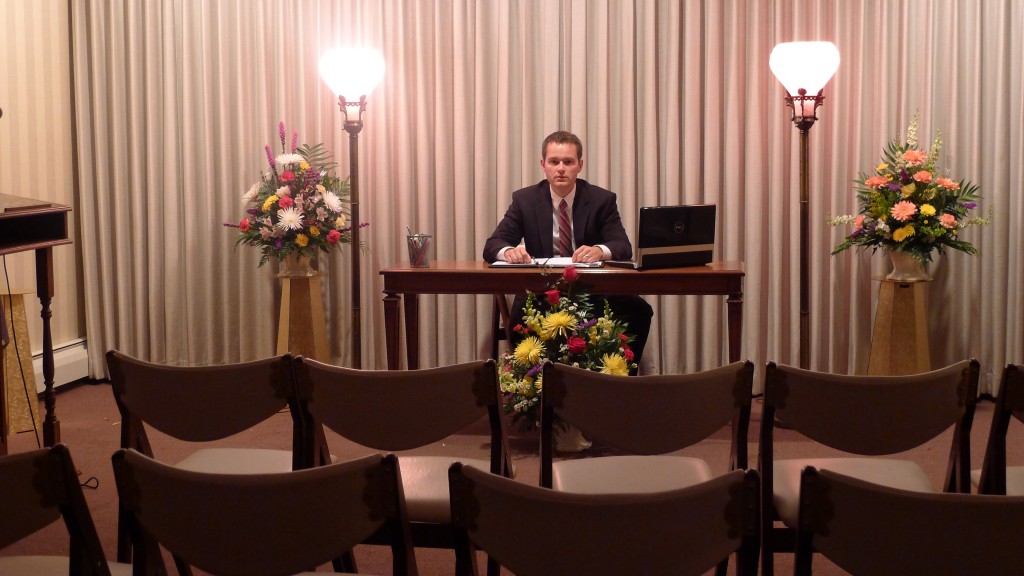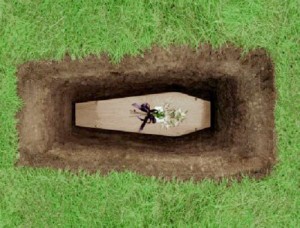Death
The Unstoppable Force
Today’s guest post is written by Jessica Fowler.
*****
The funeral home was filled with young people. While I waited in the viewing line on a ramp that lead into the chapel, I looked around at the men and women, mostly in their 20s, dressed to impress. If you cropped out our bodies with a Photoshop tool and pasted it on to a picture of the outside of a nightclub it would make a perfect billboard. Instead, we were on our way to say goodbye to another person we knew who died because of substance abuse.
Most of us had been in that line before or would be again soon. If you put all of the people between the ages of 18 and 30 from my county in a room together, you could spend days trying to find a single person whose life hasn’t been fractured by substance abuse. There is a different feeling in the air when you attend a funeral for someone who overdosed, a chilly undertone that no one wants to directly address. The unspoken fact that nearly everyone around you has grieved for this person already before, in their own way, because losing someone to addiction is like losing them twice.
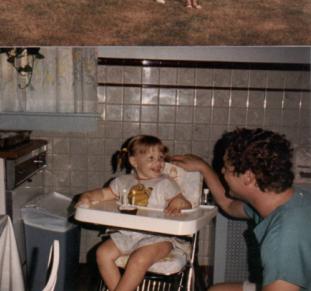 When my father overdosed in 2006, there was no trace of the man who brought me roses when I was sick. There was nothing left of the person who built pinewood derby cars with my brother for the church youth group. There was no sign of the husband who gave my mother a gift every day for the 12 Days of Christmas. He was gone long before that needle stuck into his veins, before he left his house, his job and his church. He was gone the second a distracted doctor wrote him a prescription for Adderall, scribbling away a decade of sobriety without a second thought.
When my father overdosed in 2006, there was no trace of the man who brought me roses when I was sick. There was nothing left of the person who built pinewood derby cars with my brother for the church youth group. There was no sign of the husband who gave my mother a gift every day for the 12 Days of Christmas. He was gone long before that needle stuck into his veins, before he left his house, his job and his church. He was gone the second a distracted doctor wrote him a prescription for Adderall, scribbling away a decade of sobriety without a second thought.
I mourned the man my father was long before he took his last breath. I grieved for his convictions, the principals that he traded for a poison. It doesn’t happen fast—years go by where you feel as though every time you answer the phone, it’s going to be the news you have been dreading. When you find yourself on the bottom of another person’s downward spiral, it suddenly becomes so clear how you arrived there. That unstoppable force consumed the person you loved long ago.
It’s not hard to find a scapegoat to blame. If it’s not the doctors, it’s the dealers. The shadowy figures who lace heroin with Fentanyl. The coroner’s exact words were, “John died from a bad batch of heroin”…as if there were any good kind of heroin. A dozen others died that same weekend from the same “bad batch.” More than 16,000 people a year die from opioids, but somewhere in some shadowy corner of this world, someone who wanted to make some extra money decided that that was not deadly enough. The drug baggies the police found were stamped with smiley faces.
I remember a brief “before” time when my father was still alive when I didn’t think a drug as monstrous as heroin could affect my life. Then, a few months after my high school graduation I heard that a girl I went to school with had overdosed. She was, in my memory, one of the most gorgeous girls I had ever known and the type of girl a person would say had “everything going for her.” Less than a year later, the same drug took my father.
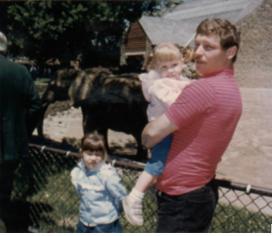 Now, when I look around at the tear-streaked faces, my mind instinctively wonders, who’s next?’ That may sound like a cynical thought, so I should mention that we were waiting in line to view the body of a man who stood in this same funeral parlor, flesh and blood, only four months ago when his brother died from a heroin overdose. To even try to imagine the grief of his parents who lost both of their sons to this demon substance is impossible. Your mind just shuts down because even the thought is too much to bear.
Now, when I look around at the tear-streaked faces, my mind instinctively wonders, who’s next?’ That may sound like a cynical thought, so I should mention that we were waiting in line to view the body of a man who stood in this same funeral parlor, flesh and blood, only four months ago when his brother died from a heroin overdose. To even try to imagine the grief of his parents who lost both of their sons to this demon substance is impossible. Your mind just shuts down because even the thought is too much to bear.
While we’re waiting, I watch as a young guy ahead of us, dressed in a long white T-shirt and shorts, trips and stumbles while moving up the ramp. His voice travels down the long passageway, angry words I can’t make sense of. I don’t have to know what he is saying to know that he is on something. Even from far away, I can see a wild, unsteady look in his eyes. There are others here too who have that same spaced-out look. I want to shake them and force them to wake up to the reality around us.
We walk through a room with photo display boards and a memorial video. I can hear a familiar piano melody and I know the song immediately. “How to Save a Life” by the Fray, the unofficial anthem for those left behind because of substance abuse. My throat catches when I see a video of the two brothers standing together in their Baseball uniforms. Children in a world that hasn’t started to sink beneath them yet. When I kneel at the casket and see someone so young, it’s hard to believe my own eyes.
I hug his dazed parents and express my condolences. In truth, it is hard to look into their faces for longer then a few seconds. To see the exhaustion that I have seen in my own face and in the face of my family reflected back feels like opening an old wound. Reliving that pain is something I can bear, but my fear of standing where they stood again was something I could not.
I remember when my mother first told me that my father was an addict and that an addictive gene ran through our blood. She told me I was old enough to know why my dad didn’t drink and had to go to therapy, and why we were sent to live with my grandmother when he went to rehab. It was during the blissful clean years, when I only knew a loving father and the word addiction was like a bee buzzing by my ear, keeping me from the outside world where I could play. I couldn’t know that the words she was telling me would echo back later. That I would be fighting with her in a struggle to save my brother from his dependency on alcohol. That the cycle of addiction would continue to repeat throughout my life.
When my brother and I were watching my dad unravel, we swore we’d never end up like him. We swore our lives would be different. I imagine those parents said the same thing after they lost their son—that they would do anything to save the other. But words and vows are worthless against the power of addiction. Before it claims your life, it claims your personality, your beliefs, even parts of your soul.
I don’t deny the culpability of the addict. I know it’s a disease of choice. I’ve known others who have crashed on the rockiest of rock bottoms and are now living wonderful lives, fully in control of their own destiny. But no matter how hard you try to stop making excuses for the addict, it’s the only way you can justify loving someone who is already gone in every way that matters. It’s like loving someone who is possessed.
It’s one thing to lose someone. It’s another to lose someone again and again and again, to that same unstoppable force. I feel like I am losing my brother against something that I can’t fight. I’ve tried before and lost, and I’m terrified of losing again.
*****
Jessica Fowler is a fiction writer and poet from the suburbs of Philadelphia. Her short story, “Anchored” was recently published in The Philly Anthology (Vol. 1). Jessica studied journalism at Temple University and when she is not working on fiction and poetry, she is busy writing articles and blogs for funeral directors as the Public Relations Specialist at ASD – Answering Service for Directors. Jessica is also an avid outdoor enthusiast who loves hiking, camping, biking and swimming. To read more of Jessica’s writing, visit her blog at characterisfate.wordpress.com.
Writing the Dark Chapters
I walk into a room at 6 a.m. and all eyes fix on me and my next move. I am, after all, the odd one out in the room, the one whose face isn’t stained with tears; the one wearing dress clothes, who’s there in body, but whose soul isn’t in the depths.
I’m the colonialist, walking into another culture, ready to impose society’s desire for a clean picture of death.
Those who are sitting around the bed of the deceased aren’t thinking about what you and I are thinking about at 6 in the morning. They aren’t wondering how they will get their kids dressed in time for school; or how they’re going to pitch their project to coworkers at work.
Everything is on hold.
Time has slowed at a pedestrian pace and they sit in grief … resisting the reality that what was their husband, their wife, their son, daughter, grandfather, friend is no longer present to hug, laugh and live with.
Death creates its own culture … its own world.
A world where time seems to altogether stop, where language is often spoken with less words and more tears, hugs and contemplation, where the regular dress code doesn’t exist and where the norms and mores of society are put on hold. Here, in this sacred space at 6 a.m. in the morning, God seems nearer; family and friends surround you; you can let your emotional inhibitions go. This is the world that was never meant to be and yet is everything you wish it could be. It seems we have to go back through death to get to Eden.
With tie draped down my dress shirt, if I can’t imagine a world unlike mine … if I can’t picture a context outside of me … if I can’t remove myself from the all too obvious facts that it’s 6 a.m., I’m tired, didn’t get my Dunkin Donuts medium coffee with cream and sugar, and that I’ll be even more tired tonight when I’m supposed to go to Chili’s with my wife; if I can’t imagine the family’s story; the story of the deceased and his life and the loss this represents, I can’t be a good funeral director.
Funeral directing is a lot like writing. It involves alterity, imagination and the ability to make a lot of the detail and little of the obvious. I write the story as I walk into the sacred space of grief.
I notice the one closest to the decease’s body. ”That’s probably the NOK”, I think to myself. Granted, the story is easier to imagine if I already know the family, but this morning I don’t. The closest one to the bed is oft the main character in this play; and I can write a story of comfort, by entering the narrative with a warm hug, maybe even a kiss, a kind smile and eyes that speak of the compassion my heart is feeling; or, I could write a story as a narrator, standing back, observing and not entering. What does this specific family need?
I wait as the drama unfolds, as my very presence evokes the supporting characters who will inevitably point me to the protagonist.
Asking questions; feeling out the room. I enter in and I – at this very moment – have the privilege and responsibility of helping to write this chapter.
Tips for Helping Your Children Grieve
In the Western world, death is one of the last taboos. Death has become so sterile … so unspeakable … so frightful … so improper … that we assume we MUST protect the innocent souls from it’s darkness. In many parental minds, those “innocent souls” who need the most protection are our children. So we shield them from death, and keep them away from funerals, viewings and the dead.
Death, though, isn’t something that we CAN protect our children from. As much as we want to give our children security and answers to their questions, death, by it’s very nature, takes away security and only provides questions. The desire to protect our children from death is understandable, but it is a part of life that — if ignored — only becomes more difficult, more frightening and more harmful. It’s a part of life that may provide some of the best teaching moments for your children. Teaching moments where you can share that:
Life has an end.
Love continues on.
We have to live and love as much as we can because we don’t know how long we have.
All of us will die, so we must pursue our dreams and enjoy the life we’ve been given.
Not only should we recognize that death confrontation provides our children with incredible teaching moments, we should also realize that children do indeed grieve. They are connected. They love. They feel. And so when death comes, they grieve. Depending on their developmental stage, they will grieve differently than adults. But as long as they are apart of our family, of the community of the deceased, they have the right to grieve with us.
Here are a few helpful tips that I’ve gathered from three separate Counseling journals about how to help your children grieve:
- When death happens, have a close relative, preferable a parent, tell the child about it immediately.
- Stay close to the child, giving them physical affection. Instead of pushing them farther away from the community during death, draw them closer into it.
- Children grieve in cycles. For example, they may be more inclined to play and divert their focus from the death when the death is recent and parents are grieving intensely. More than adults, children need time to take a break from grief. It is important to know that it’s okay to take a break. Having fun or laughing is not disrespectful to the person who died; this is a vital part of grieving, too.
- Avoid euphemisms such as, “passed on,” “gone away,” “departed”. In and of itself, the concept of death is difficult enough for a child to understand; using euphemisms will only add to the difficulty.
- Advise the child to attend the funeral, but do not force him or her to go. The funeral and viewing is the community expression of grief. As a part of the community, it’s valuable for the child to take part in that expression. Questions will arise. But, those questions are necessarily. And it’s okay if you don’t have the answers. Part of the reason why many of us DON’T take children to viewings and funerals is because we’re afraid of our children seeing us grieve … we’re afraid of our children seeing us in a state of weakness.
- Let the child see you grieve; it gives them permission to grieve on their own. “It will help the child to see the remaining parent, friends and relatives grieve. Grief shared is grief diminished…if everyone acts stoically around the child, he or she will be confused by the incongruity. If children get verbal or nonverbal cues that mourning is unacceptable, they cannot address the mourning task.”
- Gently help the child grasp the concept of death. Avoid vague explanations to the child’s questions, but answer each question as honestly as possible.
- Keep other stressing situations, such as moving or changing schools to a minimum; after the ceremonies, continue child’s regular routines.
- Be honest with the child about the depth of the pain he or she will feel. “You may say, ‘this is the most awful thing could happen to you.’ Contrary to popular belief, minimizing the grief does not help.
The Traumatic Grief of Having Two of Your Uncles Murdered
The author of today’s guest post — who wishes to remain anonymous — has experienced the murder of two of her uncles. Typically, there’s three distinct categories of grief: normal, complicated and traumatic. For the most part, the grief experienced from murder falls into the “traumatic” category of grief experience. Today’s post highlights some of the aspects of traumatic grief.
*****
Here goes my story. I’ll try to be as honest as possible and I know you can handle it but most people do not want to listen to my story cause they can’t handle it. I will give you some background info on my family.
We are all born and raised Catholic and will die Catholic. Lower middle class with a pretty good education. There is alot of alcoholism, drug addiction, and some mental illness within my family even before the two tragedies occurred.
In the summer of 1991 my Mom’s brother was murdered in broad daylight outside his place of business. My Mom and my sister were exceptionally close to him. He was a kind and gentle man who had his throat slit by a heroin junkie who just got out of jail for aggravated assault. We had to deal with a trial, the media and people just coming up to you and saying stupid things about my Uncle.
My Mom was the rock even though it was her brother. Me, my bro and my sister fell apart. My own father said he was jealous because my Mom was getting all the attention … he can be so incredibly ignorant sometimes. My sister really fell apart badly and has just now got clean after 22yrs of painkiller addiction. My brother and myself struggled with alcoholism. We are both now clean. My parents are still together after 51yrs.
We all love each other very much, perhaps too much. When you lose someone to murder you want to keep the ones you love close by. What do I attribute to all of us surviving? All of us has a strong relationship with God.
I was extremely bitter and angry with life and people, until a couple years ago when I decided I was tired of being angry. I pray more than ever now. All of us still have remnants of being a victim, of survivor guilt, PTSD, depression and insomnia to name a few.
*****
Several months before my second Uncle was murdered another horrific murder had occurred in my town and as I was reading about the details when this horrible feeling overcame me and I said to God “it isn’t over is it?”(I somehow knew in my gut there was another tragedy that would befall on my family).
Several months later I was driving home from work and instead of going home I stopped at my parents. My Dad told me they hadn’t heard from his brother in several days (this wasn’t unusual because my Uncle was depressed over the loss of his wife a year earlier). An hour later we got a phone call telling us that my Uncle was found dead on his couch. My other Uncle found him.
At this time we all had thought he had a heart attack until several days later when we got the call from the coroner that he had been stabbed in the throat. Again another Uncle had been murdered by a junkie.
I had to be the bearer of bad news to the rest of my family. I remember when I turned on the radio en route to my parents the song A Whiter Shade of Pale by Procul Harum was playing and there is a line in the song that says “they say there is no reason and the truth is plain to see” how prophetic!!
Ahhh, Forgiveness I’m sorry but you can judge me all you want but I will never forgive the assholes who murdered my Uncles. I have seen a therapist and my parish Priest over the issue of forgiveness and it has made me sick.
Forgiveness made me sick for many years until I met a kindred spirit in a coworker who told me as I wept uncontrollably, “’M’ this is too big for you to handle. Give this one to God and let him handle it.” That lifted a huge weight from my heart and to my friend “L” I will be forever grateful.
There are days I will cry for no reason and my therapist said that it’s okay to be sad when you have gone through what my family and I have. Right after my second Uncle was murdered I met the love of my life and I said to him (about 2 months after we met), “You know “J”, from the losses I have suffered I have learned that if you ever love someone, you must tell them because you never know when you might lose them.”
Tragically after three months of dating we lost his Mother and on her deathbed I promised her I would always take care of her son. Three months after that we lost his Father. “J” and I have handled the tough stuff early on in our relationship so anything else has been easier to go through.
To summarize, I truly know that without the love and support of my family and God, we wouldn’t be standing. Thank You God. If it was not for you and my belief for a better life on the other side I don’t think I would be writing this today.
Do Funeral Homes Charge Too Much for Their Services?
Do Funeral Homes Charge Too Much for Their Services?
I asked this question on my Facebook page over the weekend. Over 330 people answered. And the discussion became pretty heated. Being that I like hot topics, I thought I’d take a stab at the question.
Let me preface this article by saying that I am not an economist, nor am I an exceptional business man. The following are ten observations that are a combination of experience in the funeral industry and my heart felt intention to meet the needs of the people I serve – needs that often include an economical funeral.
One. Yes, there are bad guys (and bad corporations) in the funeral industry. Legit racketeers.
Two. Yes, there are good guys.
Funeral directors who are more concerned with helping you through the funeral process than with making money. There’s probably more good guys than bad guys. We’re out there. Find us.
Three. Shifting Cultural Attitude towards Death
The industrialization of dying has removed the dying of our loved ones from home care. The institutionalization of dying means that you will probably die in an institutional setting (hospitals, nursing homes), where “professionals” treat the body while (often) ignoring social and spiritual aspects of dying. In fact, three out of four deaths in the United States occur in a hospital or nursing home, outside of our home surrounding and outside of the comfort of our family.
The professionalization of death has removed death from home and family. The Amish hire the funeral director to embalm the body and produce the legal paper work, but they do the rest. They dress the body, they casket the body, they have the funeral at their home and they direct the funeral service. There’s something to be said about one’s caretakers in life also being one’s caretakers in death.
With the industrialization and professionalization of death and dying, we have had the responsibility taken away from the community, and without that responsibility, without that personal investment in dying and death, we no longer see the full value of funeralization.
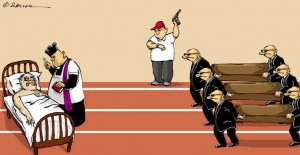 Four. Jessica Mitford and the Public Perception.
Four. Jessica Mitford and the Public Perception.
“You may not be able to change the world, but at least you can embarrass the guilty”, said Mitford. In Stephen Colbert-esque fashion, Mitford’s “The American Way of Death” wittingly embarrassed the abuses of the funeral industry in the 1960s and paved the way for the “Funeral Rule” in the early 1980s.
The “Funeral Rule” is meant “to protect consumers by requiring that they receive adequate information concerning the goods and services they may purchase from a funeral provider.”[1] And while some of the abuses in the funeral industry have been quelled by the Funeral Rule, the depiction of funeral directors as “oleaginous salesman pushing me to buy a mink-lined steel casket with an Eternal Memory Foam pillow fringed in Flemish crepe and gently scented with lilac”[2] has – to one degree or another – remained in the public perception.
On the one hand, it’s important to recognize that Mitford’s criticisms were – and, in some cases, are — warranted; on the other hand, it’s important to recognize that Mitford viewed the funeral industry through the lens of economics and class. She seemed to believe that the funeral industry was based on a desire to assert one’s standing in society. Why else would you spend a couple grand on a funeral, unless you were attempting to distinguish yourself from others? And funeral directors capitalized on this desire to brag in death. In your moment of intense weakness, we play on your pride and reach into your wallet. So, of course we are overcharging … at least, that’s part of the public perception.
Five. Value.
And this leads us to the value of a funeral. In a capitalist market, value is determined by the market … by you. If you value it, you’ll pay for it. And seeing value in a funeral is the real question. It’s not, “Do funeral homes charge too much?”; rather, its, “Is there real value in funerals?” Once we answer the value question, then we can answer the cost question.
If you don’t see value in what a funeral home is offering you, find one that offers you the product and services that you do value.
If you don’t see value in the products that the industry is offering you, demand different products and service.
If we do indeed charge too much, it’s because the market doesn’t see value in what we’re offering.
Six. Trust.
The funeral home that is geographically closest to us charges roughly two grand more per funeral than our funeral home. We know some of the people they bury and – because it’s generally known that our funeral home is rather inexpensive – I often wonder, “Why do they go to Such-and-such Funeral Home when we’re less expensive?” My conclusion? Trust. They have a better relationship with that funeral director than they do with us.
Because we recognize that death has altered our reasoning, when someone dies and we have to make arrangements, we want to go to somebody we trust … and, if possible, someone we already know. In our transient society, there’s situations where we have not connections to funeral directors / funeral homes.
But, when there is trust with a funeral director, when there is a relationship with a funeral director, especially during times of death, money isn’t as much of a consideration. The value of trust usually outweighs the cost.
Seven. Non-profit vs. for profit.
I think there’s an expectation for us to be a non-profit organization. To be a ministry. But, if we were a non-profit ministry, there’d simply be less consumer options. It would be governed by a board, the products would be determined by donors and the service might be even more cookie cutter than it already is.
There are options. You should be able to find a funeral home that offers a direct cremation for under $2,000. You don’t have to be embalmed. There are cemeteries that don’t require vaults. There are inexpensive caskets.
You can die at home. You can be more involved in the death process. In 1996 Jessica Mitford was buried for $533.31. With inflation rates factored in, you can purchase the equivalent of Mitford’s funeral today.
Nine. Prepaying / Insurance Policies.
It’s always much more difficult to handle the expenses of a funeral when you have to pay it all at once. Think buying a car with cash. Not all of us can do it.
If you plan ahead, or buy an insurance policy, you can pay in increments and when the time comes it’s not as much of a shock.
Ten. Pre-planning: Now is the Time to Think about Death.
We plan for weddings. We plan for births. Think about your dying and death now. Think about what you want. Think about how you want your funeral to look. Find a funeral director who can meet your needs
[1] http://en.wikipedia.org/wiki/Funeral_Rule
[2] http://www.patheos.com/blogs/godandthemachine/2013/06/finaljourney/
